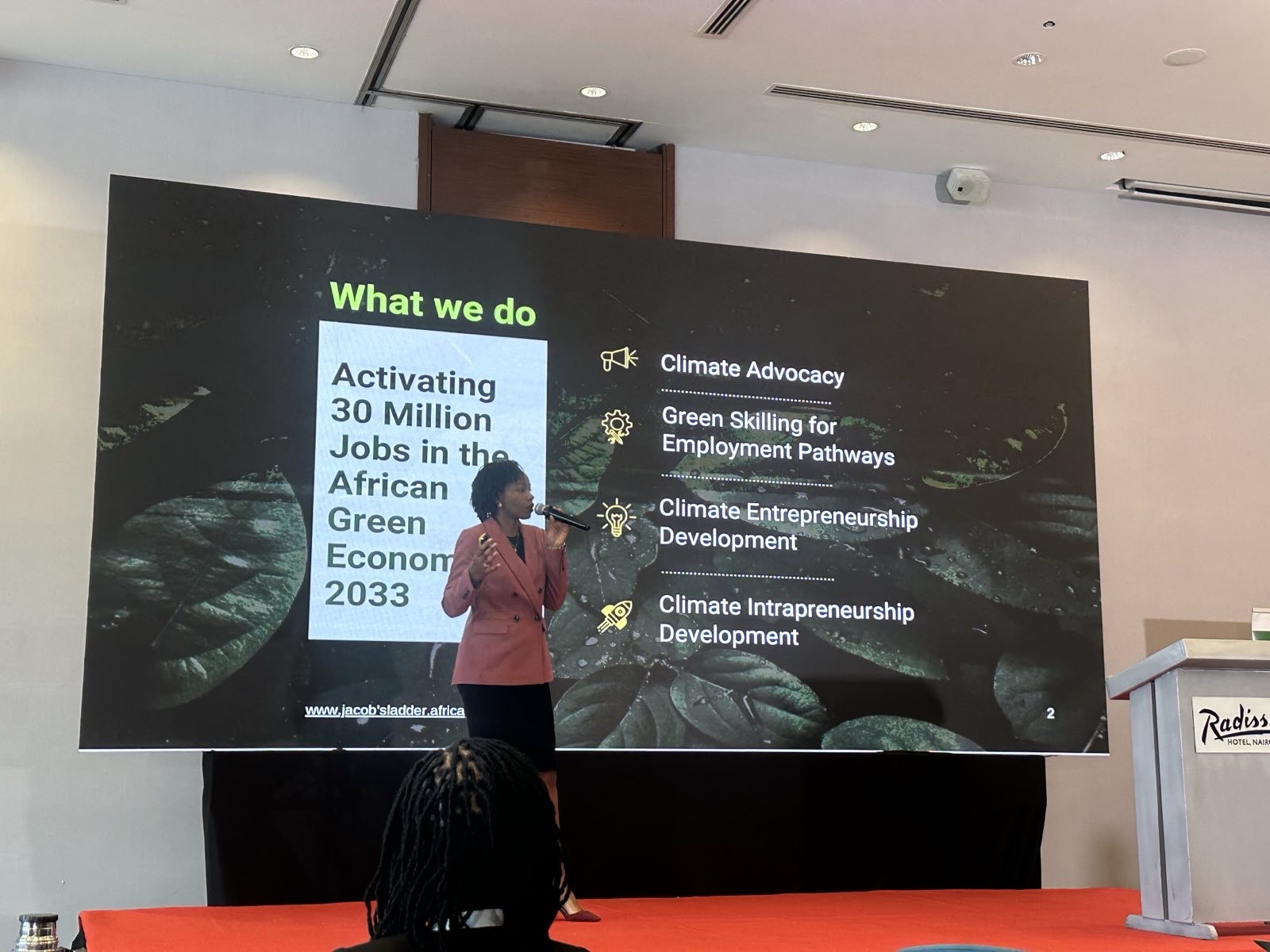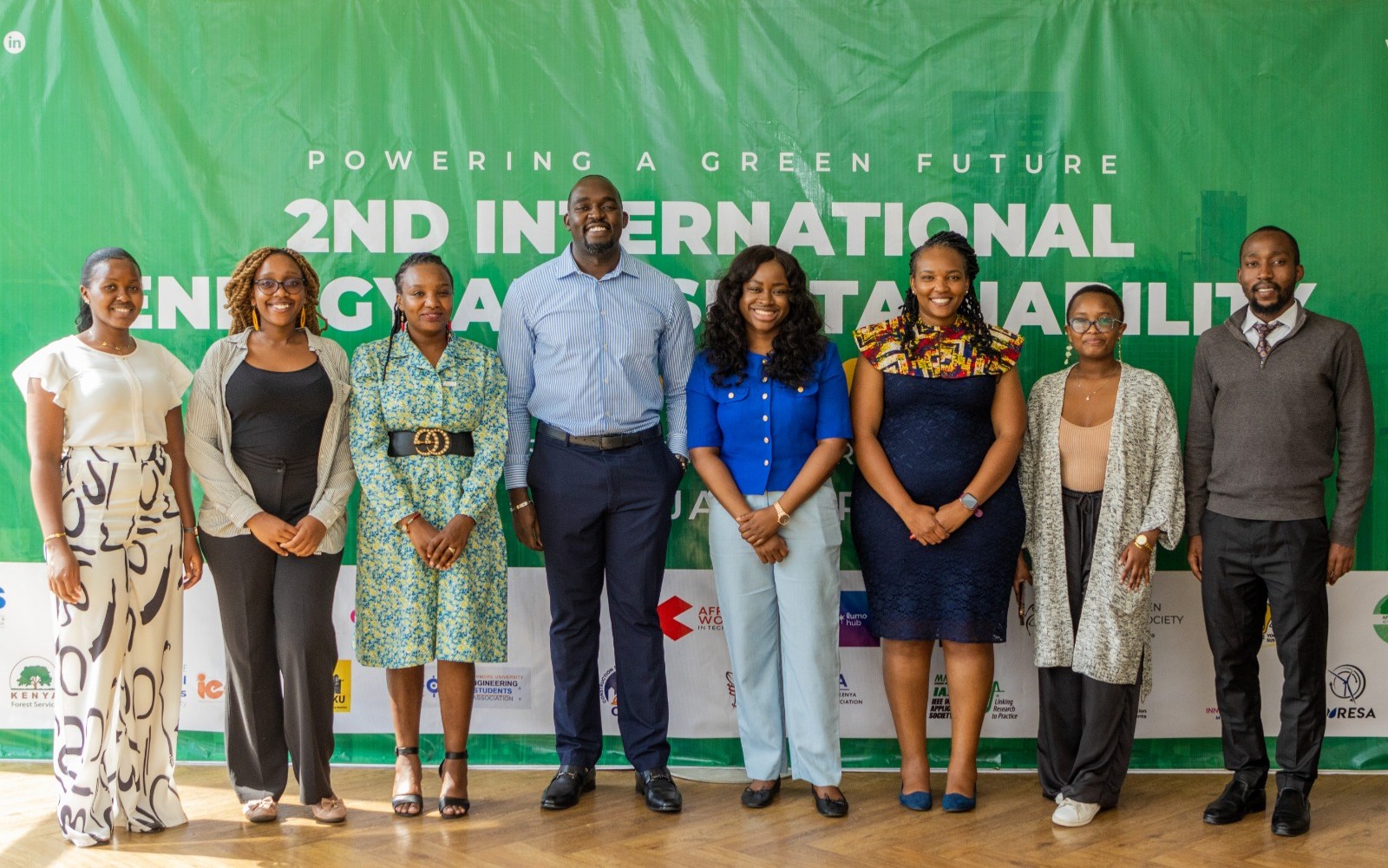As we navigate the challenges of climate change in 2024, the construction industry stands at the forefront of a green revolution, offering opportunities for youth employment. The sector’s shift towards sustainable practices has opened up a wealth of green jobs, providing a dual solution to both environmental concerns and youth unemployment.
It is for this reason that Sellah Bogonko, JLA’s Co-Founder and CEO, was invited by the Kenya Green Building Society (KGBS) to speak at their annual conference on Wednesday, September 4th 2024 at Radisson Blu Hotel.
According to the African Development Bank’s 2024 report, the green economy could create up to 60 million jobs in Africa by 2030, with the construction sector playing a pivotal role. Kenya, as a regional leader in sustainable development, has seen a 40% increase in green construction projects since 2022, opening up numerous opportunities for its youth.
“Kenya stands out as a prime environment for a green future, having positioned itself at the forefront of the sustainable transition,” Sellah stated. She further highlighted several key facts demonstrating Kenya’s commitment: “It is among the select few countries globally with dedicated climate change legislation, namely the Climate Change Act of 2016. This landmark law provides a clear framework for the country’s low-carbon transition.”
She continued, “The Kenyan Ministry of Education is actively implementing Education for Sustainable Development (ESD), embedding environmental consciousness into the nation’s curriculum.” “Moreover, at the recent COP28, Kenya’s government secured a substantial $4.48 billion deal for Green Development projects, further solidifying its commitment to sustainable growth.” These initiatives, she noted, collectively position Kenya as a leader in Africa’s green economy transition, creating a fertile ground for innovation and sustainable development.
The International Labour Organization’s Africa Green Jobs Program reported that in 2024, green construction jobs in Africa grew by 25% compared to the previous year, with Kenya accounting for 15% of this growth. This trend is expected to continue, driven by urbanization, population growth, and increasing climate consciousness.
To thrive in these emerging roles, African youth need to develop a specific skill set that combines traditional construction knowledge with green expertise:
- Technical Skills:
- Proficiency in renewable energy systems, particularly solar
- Understanding of green building materials and techniques relevant to African contexts
- Knowledge of water conservation and management systems
- Familiarity with African green building rating tools like the Green Star SA-Kenya system
- Digital Literacy:
- Ability to use Building Information Modeling (BIM) software
- Skills in geographic information systems (GIS) for urban planning
- Proficiency in energy modeling and simulation tools
- Climate Resilience Knowledge:
- Understanding of climate-responsive design for African climates
- Knowledge of disaster-resistant construction techniques
- Soft Skills:
- Cultural sensitivity and community engagement abilities
- Adaptability to work in diverse African contexts
- Strong communication skills to explain green concepts to local stakeholders
- Entrepreneurial Skills:
- Basic business management for self-employment in the green sector
- Innovation and problem-solving to address unique African challenges
- Regulatory Awareness:
- Understanding of local and pan-African green building codes and standards
- Knowledge of environmental regulations in different African countries
Jacob’s Ladder Africa (JLA) has and continues to play a pivotal role in fostering an enabling environment through its various convenings and forums on the same, such as the groundbreaking National Green Jobs and Skills Development Workshop, held at the Kenyatta International Convention Centre (KICC) on May 3rd, 2024; a landmark event that drew over 2,000 participants from 38 countries, uniting diverse stakeholders to forge crucial pathways into the green economy.
The workshop yielded two significant outcomes:
- The establishment of the Kenya Green Skills Development Hub, a center dedicated to nurturing the talents and expertise needed for the emerging green economy.
- The creation of the Green Jobs & Skills Legislative Framework, providing a comprehensive policy foundation to support the growth of sustainable employment opportunities.
These initiatives underscore JLA’s commitment to bridging the gap between policy and practice, effectively translating Kenya’s green ambitions into tangible opportunities for its workforce.
As Africa strives to build resilient, sustainable cities, the green construction sector offers a pathway to both environmental sustainability and youth empowerment. If young Africans equip themselves with the necessary skills and embrace sustainable building practices, they can construct not just edifices, but a legacy of environmental stewardship and economic growth for generations to come.






